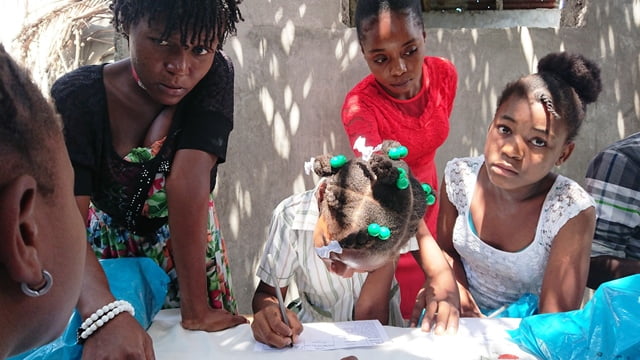Restavek
In Haiti, many rural families living in poverty will often send their children to work for and live with host families as domestic servants in exchange for better access to food, housing, and education. The host families, however, rarely hold up their end of the bargain. Instead, the children are exploited for their labor, working day and night, while being denied the nutrition, security, and education they so desperately need. These children, mostly girls, are extremely vulnerable to emotional, physical, and sexual abuse. These children are known as Restavek.
Restavek Practice Expanding Geography.
Although this exchange has typically been carried out between rural and urban families, the above survey highlights the practice’s expanding geography. Haiti is still a largely rural country, but it also has major urban centers such as Port-au-Prince and its suburbs boasting populations of around 3,000,000 residents. At the same time, you have the far more common smaller communes throughout the country, such as Les Anglais, with a population of about 28,000.
Administratively, Haiti is divided into 10 departments—comparable to states in the US and provinces in Canada—41 arrondissements, and 133 communes, which make up the third level of local government. Restavek children can be found in numerous communes and every department, revealing the regular and systemic nature of the practice. These exploited children are located throughout Haiti’s diverse suburbs, urban centers, coastal towns, and mountain villages.
Notably, the above graphic also reveals that there are statistically higher numbers of female than male children living as Restaveks. According to the survey, nearly 30% of female respondents live with families other than their own, compared to 20% of their male counterparts.
Data Source
The raw data provided to Haiti Now by FAFO Research Foundation and the Institut Haitian del’ Enfance, were collected in 2013 - 2014.
Haiti Now has published this data online in an interactive manner. Click here to review this data in more detail, and to see other dimensions of the living conditions of Restavek in Haiti. Click here to see all our visualizations.
Building The Residential School
Haiti Now administers comprehensive programs that enable girls to overcome domestic servitude. It is now working on building a residential school dedicated to the long term empowerment of Restavek girls.
In this residential school, Haiti Now will provide an accelerated education, health care, emotional support, mentoring, arts, sports, and healthy socialization with peers and adults. Our goal is to provide the comprehensive support needed for Restavek girls to build a healthy and financially secure future, all under one roof.
Please support us at https://www.haiti-now.org/donate/
